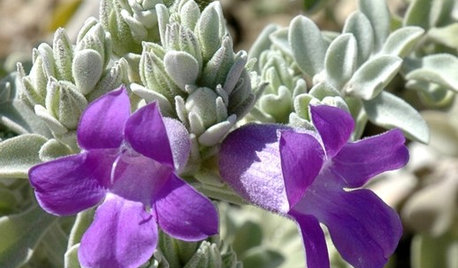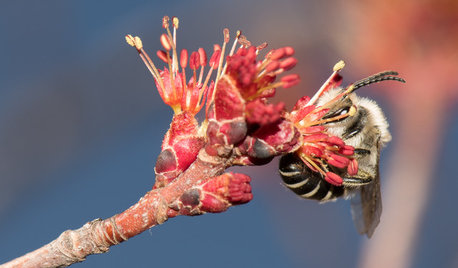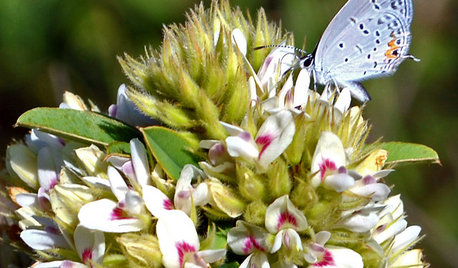yellow leaves, very good soil.....
auntlavender
14 years ago
Related Stories

FARM YOUR YARDHow to Get Good Soil for Your Edible Garden
The nutrients in your soil feed the plants that feed you. Here are tips on getting it right — just in time for planting season
Full Story
GARDENING GUIDESHow to Stop Worrying and Start Loving Clay Soil
Clay has many more benefits than you might imagine
Full Story
GARDENING GUIDESGreat Design Plant: Try Blue Bells for Blooms in Dry Soil
This shrub’s violet-blue flowers and silvery foliage brighten low-water gardens all year long
Full Story
FALL GARDENING5 Ways to Put Fall Leaves to Work in Your Garden
Improve your soil and yard the organic way with a valuable garden booster that grows on trees
Full Story
GARDENING GUIDESInvite Cellophane Bees to Your Garden by Providing Patches of Bare Soil
Look for cellophane bees (Colletes) pollinating flowering trees and shrubs in U.S. gardens this spring
Full Story
GARDENING GUIDESGardening Solutions for Heavy Clay Soils
What’s a gardener to do with soil that’s easily compacted and has poor drainage? Find out here
Full Story
GARDENING GUIDES5 Prairie Wildflowers That Can Heal Your Soil
Get free, organic soil fertilizer with nitrogen-pumping plants that draw pollinators too
Full Story
GARDENING GUIDESHow to Pick a Mulch — and Why Your Soil Wants It
There's more to topdressing than shredded wood. Learn about mulch types, costs and design considerations here
Full Story
GARDENING GUIDESGrow a Beautiful Garden in Alkaline Soil
Got alkaline soil? Learn how to manage it and the many beautiful plants that will thrive in this ‘sweet’ soil
Full Story
GARDENING GUIDESHouzz TV: Make a Worm Bin for Rich Soil and Happy Plants
A worm-powered compost bin that can fit under a sink turns food scraps into a powerful amendment for your garden. Here’s how to make one
Full Story









serenasyh
auntlavenderOriginal Author
Related Professionals
Beavercreek Landscape Architects & Landscape Designers · Essex Landscape Architects & Landscape Designers · Marina Landscape Architects & Landscape Designers · Wareham Landscape Architects & Landscape Designers · Bedford Heights Landscape Contractors · Cambridge Landscape Contractors · Canyon Lake Landscape Contractors · Coeur d'Alene Landscape Contractors · Lehigh Acres Landscape Contractors · Old Saybrook Landscape Contractors · Rio Linda Landscape Contractors · Siloam Springs Landscape Contractors · Southbury Landscape Contractors · Vacaville Landscape Contractors · Bull Run Specialty Contractorsmichaelg
michaelg
Kimmsr
gardenfanatic2003
Kimmsr
michaelg